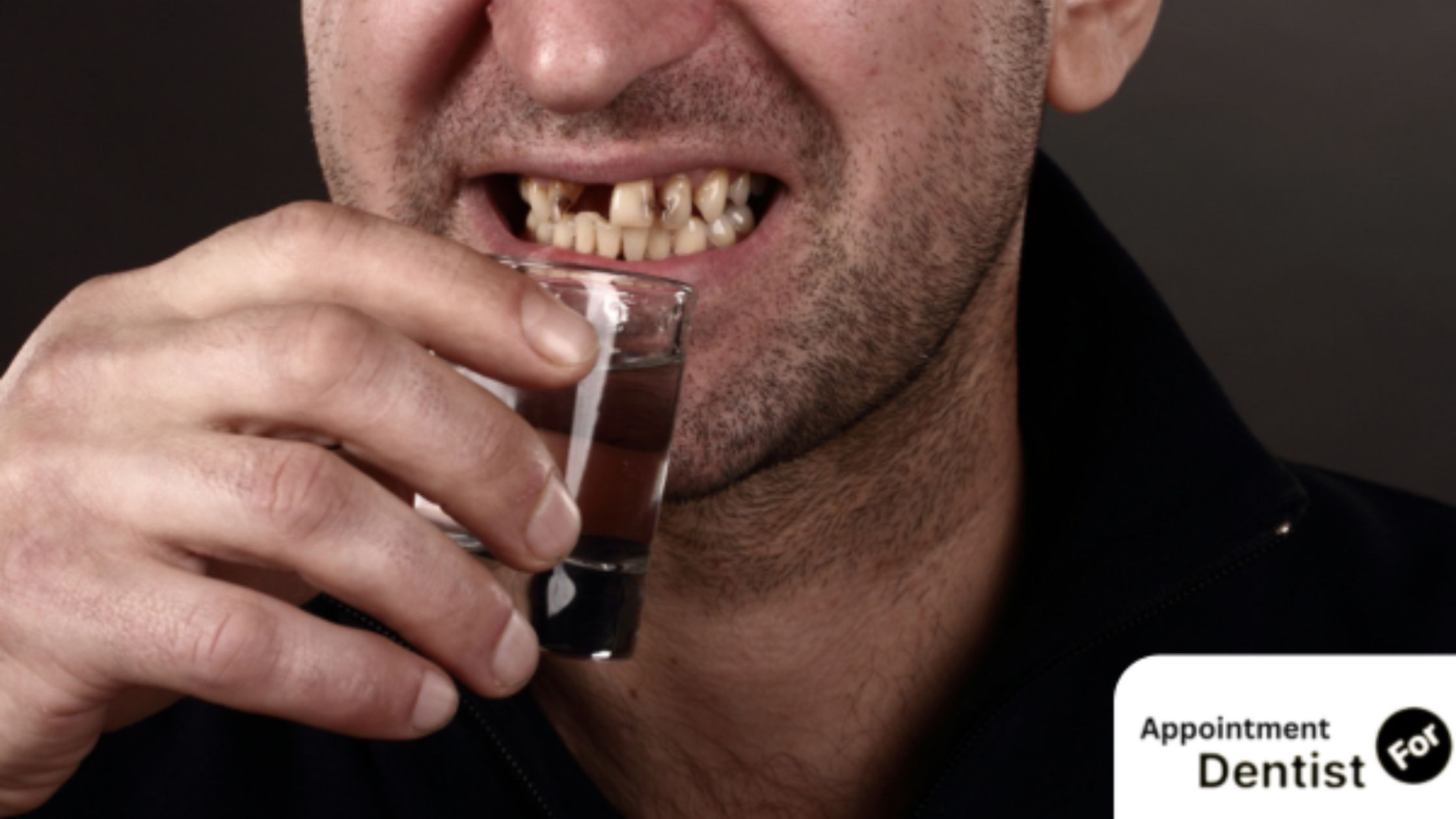How Alcohol Consumption Affects Your Oral Health
Posted on July 09, 2024 by Admin

Alcohol consumption is a common part of social gatherings and leisure activities for many people. While moderate alcohol consumption may not seem harmful, it can have significant effects on your oral health. Understanding these impacts is essential for maintaining a healthy smile and overall well-being.
Dry Mouth and Reduced Saliva Production
One of the immediate effects of alcohol consumption is its drying effect on the mouth. Alcohol is a natural drying agent that can reduce saliva production. Saliva plays a crucial role in oral health by washing away food particles, neutralizing acids produced by bacteria, and helping to protect tooth enamel. A dry mouth can lead to discomfort, bad breath (halitosis), and an increased risk of tooth decay and gum disease.
All you need to know about:A Comparison of Electric vs. Manual Toothbrushes
Increased Risk of Gum Disease
Regular and excessive alcohol consumption can weaken the immune system, making it harder for your body to fight off infections, including gum disease. Gum disease, also known as periodontal disease, ranges from mild gum inflammation (gingivitis) to severe infection that damages the soft tissue and destroys the bone supporting your teeth. Symptoms include swollen or bleeding gums, persistent bad breath, and tooth sensitivity. Long-term alcohol use can exacerbate these symptoms and increase the risk of developing advanced gum disease.
Tooth Decay and Cavities
Alcohol, especially when combined with sugary mixers or consumed frequently, can contribute to tooth decay and cavities. Sugary alcoholic beverages provide a breeding ground for bacteria in the mouth, which produce acids that erode tooth enamel. Over time, this erosion can lead to cavities and tooth sensitivity. Additionally, alcoholic beverages with high acidity levels, such as wine and certain cocktails, can also weaken tooth enamel and increase susceptibility to decay.
Oral Cancer
Prolonged and heavy alcohol consumption is a significant risk factor for oral cancer. Alcohol can irritate the tissues in the mouth and throat, leading to chronic inflammation and potentially increasing the risk of developing oral cancer. When combined with other risk factors like tobacco use (including smoking and chewing tobacco), the risk of oral cancer further escalates. Regular dental check-ups are crucial for early detection and treatment of oral cancer, particularly for individuals who consume alcohol regularly.
Staining and Discoloration of Teeth
Many alcoholic beverages, particularly red wine and dark spirits like whiskey and rum, contain chromogens and tannins that can stain tooth enamel. These substances can lead to yellowing or discoloration of teeth over time, affecting the appearance of your smile. Staining from alcohol consumption can be exacerbated by poor oral hygiene habits, such as infrequent brushing and flossing.

Must read: Everything You Need to Know About Full Mouth Reconstruction
Tips for Maintaining Oral Health While Consuming Alcohol
Moderation is Key: Limit alcohol consumption and choose drinks with lower sugar and acidity levels.
Stay Hydrated: Drink plenty of water to help counteract the drying effects of alcohol and promote saliva production.
Visit Your Dentist Regularly: Schedule dental check-ups every six months for professional cleanings and oral health assessments.
Consider Alternatives: Opt for alcohol-free beverages or drinks with lower alcohol content to reduce the impact on your oral health.
Understanding how alcohol consumption affects your oral health is crucial for making informed decisions about your overall well-being. By practicing moderation and maintaining good oral hygiene habits, you can minimize the negative effects of alcohol on your teeth and gums, ensuring a healthier smile for years to come.
Faqs
-
1. How does alcohol contribute to dry mouth?
Alcohol is a natural drying agent that reduces saliva production, leading to dry mouth. Saliva helps rinse away food particles and neutralizes acids in the mouth, essential for maintaining oral health. A dry mouth increases the risk of tooth decay and gum disease.
-
2. Can alcohol consumption lead to gum disease?
Yes, regular and excessive alcohol consumption weakens the immune system, making it harder for the body to fight off infections like gum disease (periodontal disease). Alcohol-related gum disease symptoms include swollen or bleeding gums, bad breath, and increased susceptibility to oral infections.
-
3. How does alcohol contribute to tooth decay and cavities?
Alcoholic beverages, especially those with added sugars or high acidity levels (e.g., cocktails and mixers), can promote bacteria growth in the mouth. These bacteria produce acids that erode tooth enamel, leading to tooth decay and cavities over time.
-
4. Does alcohol consumption increase the risk of oral cancer?
Yes, prolonged and heavy alcohol consumption is a significant risk factor for oral cancer. Alcohol irritates the tissues in the mouth and throat, leading to chronic inflammation and potentially increasing the risk of developing oral cancer, especially when combined with tobacco use.
-
5. How can I minimize the negative effects of alcohol on my oral health?
Practice moderation by limiting alcohol consumption and opting for drinks with lower sugar and acidity levels. Stay hydrated with water to counteract the drying effects of alcohol and promote saliva production. Maintain good oral hygiene habits by brushing your teeth at least twice a day, flossing daily, and visiting your dentist regularly for check-ups and cleanings.
Recent Post
- The Importance of Oral Health Education for Children
- How to Choose the Right Orthodontic Treatment for Adults
- The Link Between Oral Health and Stroke Risk
- How to Address and Prevent Gum Recession
- Innovations in Dental Anesthesia: Pain-Free Procedures
- The Role of Saliva in Oral Health: Functions and Disorders
- Exploring Holistic Dentistry: What You Need to Know
- How Oral Health Affects Your Immune System
- The Benefits of Using Dental Probiotics
- Oral Health and Pregnancy: Myths and Facts